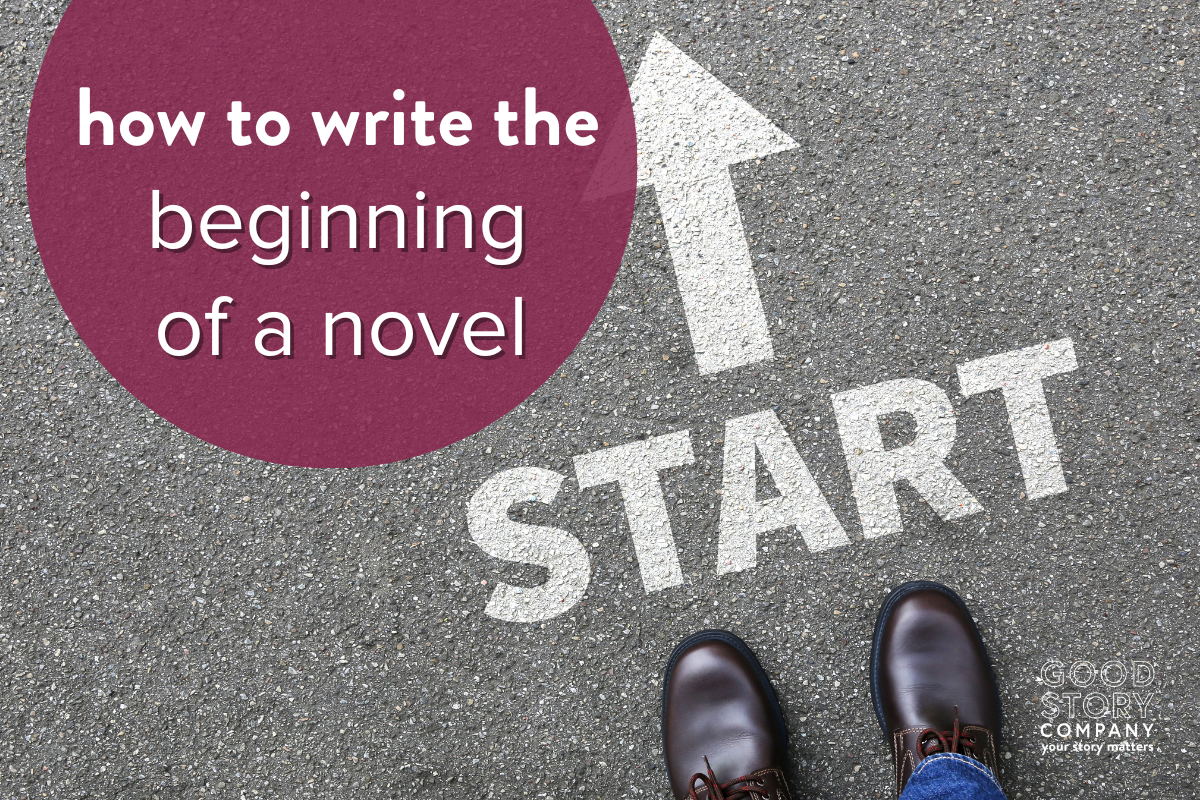How to Write the Beginning of a Novel
Writing the beginning of a novel isn’t necessarily the same thing as beginning to write a novel. You might write the middle or the end first, but no matter what, you’ll eventually have to go where your story starts. The beginning, or first act, of your story lays out the premise and sets the foundation from which the plot will unfold. This foundation is important in terms of creating impact with the developments and conflicts that make up your narrative. So, here are three elements to consider if you need help with how to write the beginning of a novel.
There should be a reason why the story starts here…
Wherever you are in your writing journey—from an initial outline to a draft to pitching your project—the experienced team at Good Story Editing can take your work to the next level.
Why does this moment matter in the context of the story?
Unless the story begins with your character being born - an event that marks a deviation from what they were before nonetheless - the assumption is that they’ve been alive all this time. Their backstory leads up to the beginning of the narrative, and there has to be a reason that the story you’re telling starts here as opposed to yesterday or tomorrow, a few years ago, or when they’re near the end of their life. Make sure you understand what about this moment/time in the character’s life warrants a story being told. Drawing that out in the beginning will help set the trajectory of the story and orient readers to understand why what’s about to happen is important.
Establish the Status Quo
In terms of drawing out why the moment of the story is significant, you should also consider how you’re setting up the status quo. If we don’t understand how life usually goes - whether the focus is on a specific character or a larger story about a town or community - then the change that propels the plot won’t have an impact. Even if your opening scene is the moment that sparks change, you’ll still want to weave in backstory not only to create a sense of history, but to help readers track the difference between how things were and how they are changing.
How to write the beginning of a novel in beats
If you consider a typical plot structure, the beginning is usually the first act. Writers have their individual ways of outlining and plotting their narratives, but I find it helpful to keep in mind the core elements of each act to ensure I’m writing my scenes with direction and purpose. The first act usually consists of three big moments:
The opening
These are the first words to touch the page. Whether you’re luring readers into a world that soon gets turned upside down or you jump immediately into the catalytic action of your story, the opening is – essentially – the beginning of the beginning. This is the first impression you make on readers, sometimes the deciding lines that push readers to continue or to put the book back. Try to make your opening immersive and avoid explanatory language. We don’t yet have to know how or why we got here, keeping your readers here – in the moment of your narrative – is what’s important.
The Inciting Incident
Sometimes the opening is the inciting incident, and that’s okay. Other times, there might be a few foundational setup scenes preceding this moment, creating the status quo so that when the inciting incident happens readers are as altered as the characters in the story. This is the moment that exacts change, that pushes the character to act differently and thus face consequences and new choices that mark this time in their life as something beyond the norm – something worth showing readers.
The Act one Decision
This usually is the last scene in the first act, the way you round out your beginning. As mentioned above, the inciting incident either is or influences the character to make a decision, and that decision is what sets the rest of the story in motion. Your act one decision should characterize the trajectory of the story at large and give readers a sense of what’s to come (whether your story follows that prediction or you incorporate twists is up to you!). Most importantly, this decision should have consequences that continue to push the plot forward in an active and engaging way.
I would love to see how your first pages are shaping up! Book your first 5k edit with me here.

